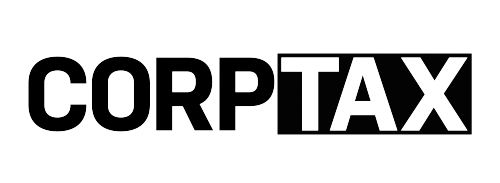New project, new opportunities: DemoTrans
Several CORPTAX team members are involved in the DemoTrans project, recently accepted for funding as part of the Horizon 2020 programme by the European Commission. DemoTrans will study the interplay between the sustainability of our democratic institutions and corporate transparency. The project is set out to begin on September 1, 2022, and will take four years to implement.
There are five members of the consortium of DemoTrans: in addition to the CORPTAX research group at Charles University, the consortium includes KU Leuven (which is the leading institution of the project), the University of Bergen, Utrecht University, and the Tax Justice Network.
Are you interested in implementing DemoTrans with us as a PhD researcher? Apply here!
What follows is a summary of the content of the DemoTrans project:
The globalisation and liberalisation of markets triggered a period of unprecedented growth – as well as improvements in standards of living and consolidation of liberal democracies – in the decades following the Second World War. Recently, however, we have witnessed a substantial reversal in these trends. Today, globalisation and multinational corporations rather appear to challenge liberal democracy, social cohesion as well as (environmental) sustainability. In effect, the notion that liberal, representative democracy is in some form of crisis – or even a terminal decline – has been brought forward by numerous scholars. The academic literature studying these developments often focuses on describing and interpreting what is going ‘wrong’. However, the key challenge is to outline and understand the emerging type of politics as well as to envisage and develop the contours of new promising approaches to re-embed democracy and capitalism. This key challenge lies at the heart of the DemoTrans project, and we address it by bringing together a multidisciplinary consortium of six experienced and leading research groups from four European research universities and an NGO with a strong track record. Building on the team’s wide-ranging expertise, DemoTrans develops novel theoretical and empirical academic research that will produce robust recommendations for encouraging stronger democratic accountability and inclusion in economic processes.
The DemoTrans consortium will study the organization of democratic governance (at different levels of government) and its inter-connections with public and private sector accountability, with the aim to offer concrete solutions to policymakers that can help overcome the range of negative impacts the current corporatised and financialised capitalism may have upon democracy, inequality, and economic, social, and (environmental) sustainability. Our central argument will be that innovative policies to increase transparency and to promote good governance are crucial tools to mitigate these negative impacts, to promote inclusive growth, and to facilitate the sustainability of democratic societies. We will study the trends in capital accumulation and distribution over time, how these are affected by the recent globalization and digitalization of the economy, and how these affect the functioning of democracies. Related to this, we aim to bring forward a deeper understanding of the optimal characteristics of governance structures over the economy (including the oft-overlooked role of civil servants working in public sector organizations) and the optimal mechanisms of cooperation and coordination between the different levels of government in governance networks. Moving down to the firm level, we finally also assess how recent economic developments and governance structures can increase corporate accountability in various areas.
It is important to observe that corporations can have a real and substantial impact on democratic decision making as well as on the allocation of public funds such as public procurement contracts and subsidies. This is true in both the most advanced democracies of the global north as well as environments with low accountability and weak rule of law. These observations lead us to the central empirical focal points of DemoTrans, i.e., studying the channels of, mechanisms behind, and institutional solutions to, corporations’ political influence. We thereby specifically concentrate on the role of increased digitalization and pressures towards higher transparency (e.g., regarding lobbying and campaign sponsorship in the European Union).
Alternative economic and political models have already started to emerge as a response to calls for greater openness, transparency, and fairness. For instance, studies of public procurement document a shift from traditional, closed and short-sighted tenders to open projects with contributions from end-users, consideration of formal voluntary standards, and longer-term engagement with the market. Such public procurement of sustainable and innovative solutions is becoming a new standard, which reflects that public procurement can be a powerful means by which to foster economic growth while improving innovation and sustainability. A key part of the DemoTrans project lies in the careful theoretical and empirical study of these models, including an assessment of how they succeed in overcoming the challenges posed by traditional approaches to procurement. Studying these developments – and, more particularly the processes, instruments and methods to incorporate welfare in decision-making by public authorities – in the public procurement of sustainable and innovative solutions thus allows us to contribute to the broader development of new governance models.

